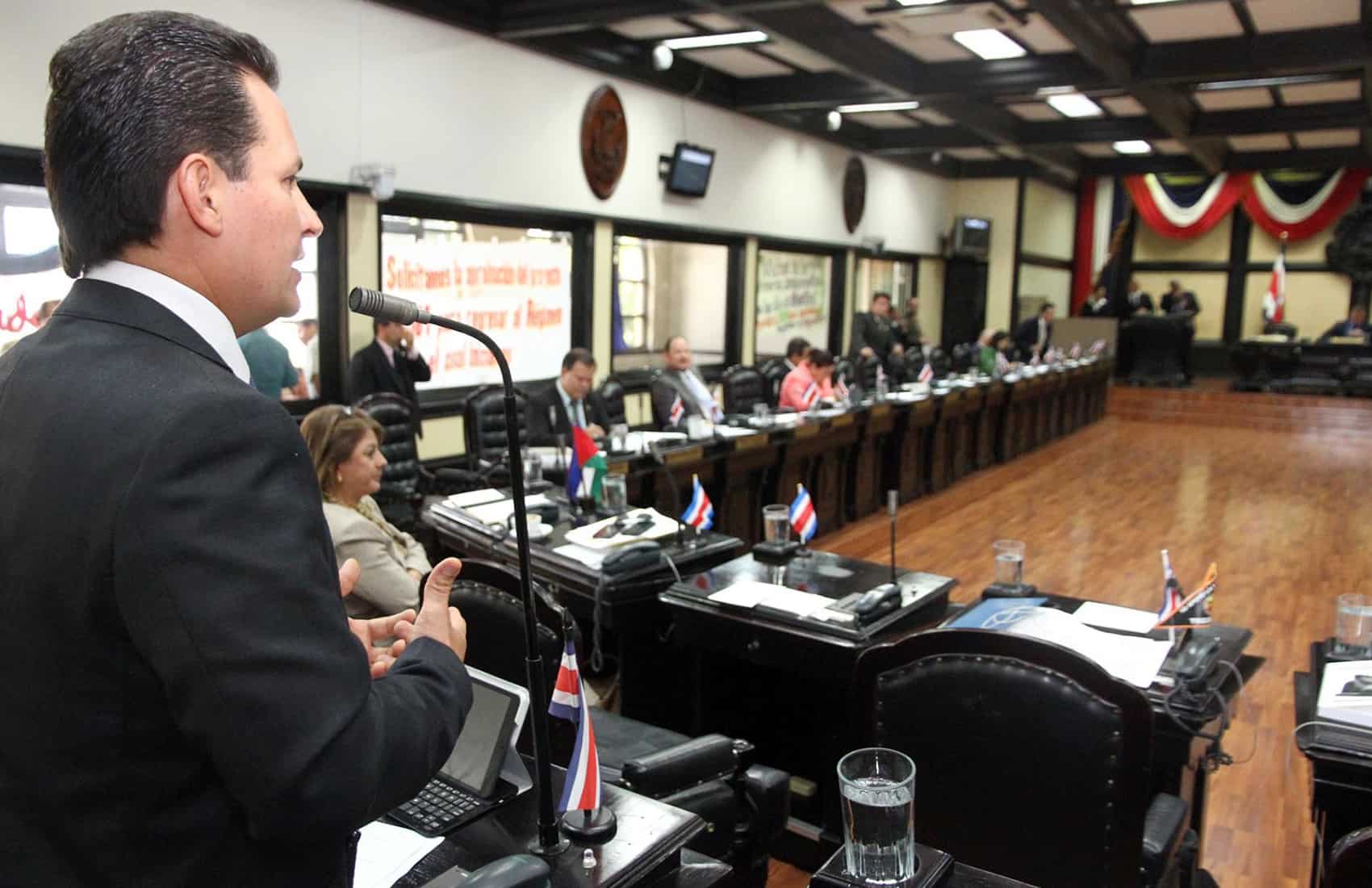As the Legislative Assembly officially ends its second year in office Sunday, most party leaders agree that this past legislative session held very few highlights.
Several legislative leaders attributed the session’s low productivity to what they said were poor communication and negotiation skills in the administration of Luis Guillermo Solís.
During each year’s extraordinary legislative sessions, which run Dec. 1-April 30 and Aug. 1-31 — the list of bills to be discussed and voted on is determined by the president with the help of his cabinet members.
Recommended: Why May 1 is much more than Labor Day for Costa Rica’s government
According to official records, lawmakers met 67 times and approved 18 bills — an average of one bill every four sessions — over the past five months.
Of the approved bills, 14 were new laws, two were agreements, one was an official appointment (Comptroller General) and one was a posthumous recognition of writer and union leader Carmen Lyra.
Libertarian Movement legislator Otto Guevara said poor relations with the executive branch in recent months prevented more fluid legislative work.
“Negotiations between the Presidency Minister and lawmakers were nonexistent. The bills that we managed to pass were the result of consensus among us,” Guevara said.
The leader of the ruling Citizen Action Party (PAC), Javier Cambronero, also described the legislature’s work during the extraordinary period as “very poor.” He said he had hoped to at least reach consensus on priority bills like the corporate tax bill and others aimed at fiscal reform.
Rolando González, leader of the National Liberation Party, the biggest legislative group, said the ending period was marked mainly by “ineffectiveness caused by the government’s huge mistakes in managing the legislative agenda and relations with lawmakers.”
Key pieces of legislation still lingering include a bill to fund the Costa Rican Railroad Institute; an anti-tax fraud bill; the Solís’ administration’s proposed revamping of the country’s sales and income taxes; and the animal welfare bill that Solís promised to prioritize back in December 2014.
The animal welfare bill was first on the legislative agenda on Thursday, the last day of the period, but Libertarian leader Guevara and Social Christian Unity Party (PUSC) lawmaker Johnny Leiva filed 45 motions against it, effectively preventing it from coming to a vote.
One of the few positive assessments of the recently-ended period came from PUSC leader Luis Vásquez, who said that despite the low number of bills passed, the legislature did pass several bills that had been long-stalled at the Assembly, some of them for years.
Broad Front Party’s Gerardo Varela also said he is satisfied by the important bills that did pass, such as the reforms to the country’s Labor Law and amendments to the Rent Law.
Government satisfied
Members of the Solís administration, for their part, said they were satisfied with the results of the legislative session and that they had worked will with legislators.
Presidency Vice Minister Luis Paulino Mora said Thursday that the progress achieved in this extraordinary period of sessions “reflects the close relation between the executive branch and lawmakers over the past five months.”
Mora said the list of approved projects, along with progress made on others that are close to approval, represent a positive balance for the administration.
Presidency Minister Sergio Alfaro said the government will maintain dialogue and open negotiations with all parties to ensure that priority bills keep moving forward in the coming months.
Alfaro noted that the executive branch will continue to insist on the need to approve, as soon as possible, all tax reforms proposed by President Solís.
Solís will present his second State of the Nation report on Monday.






